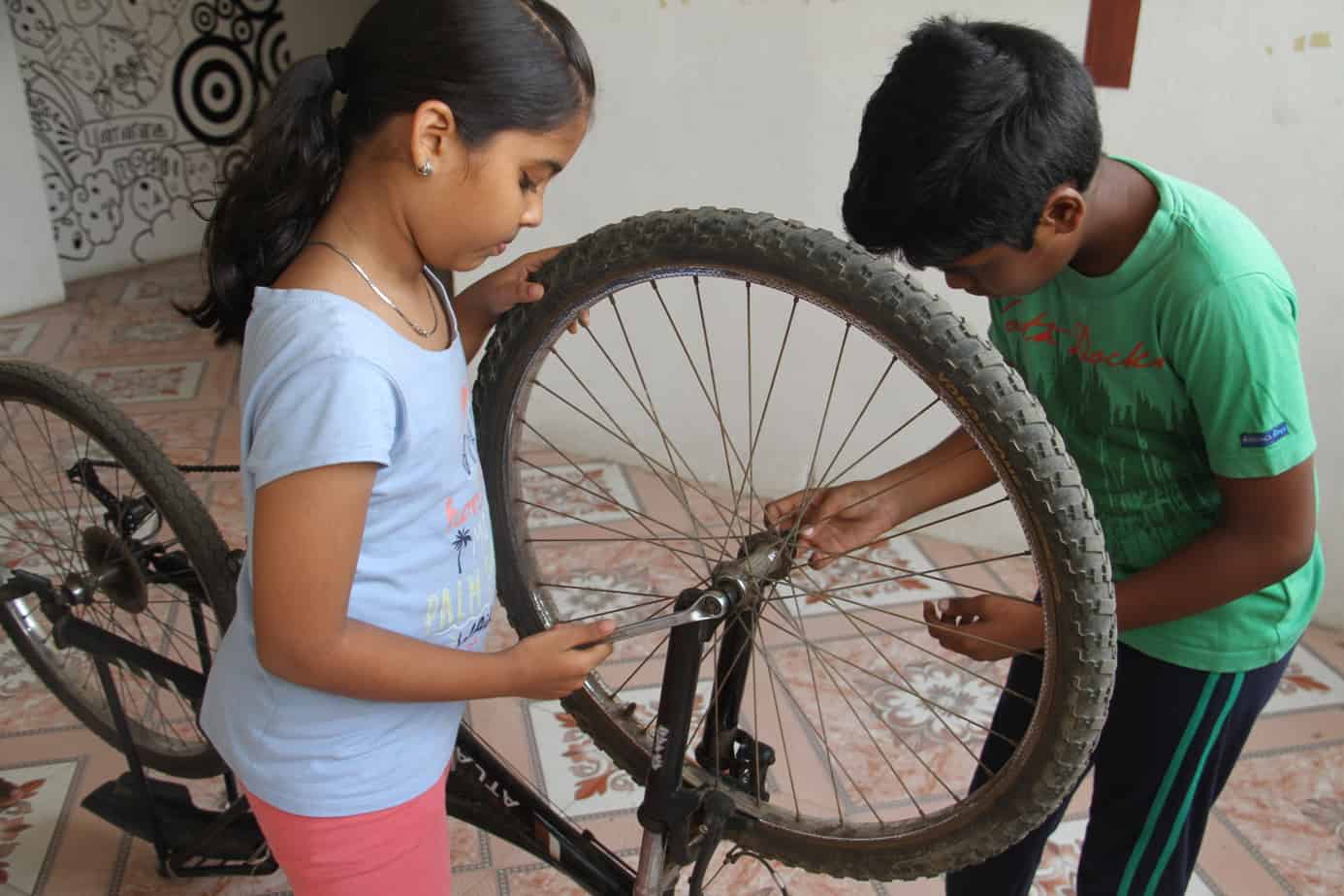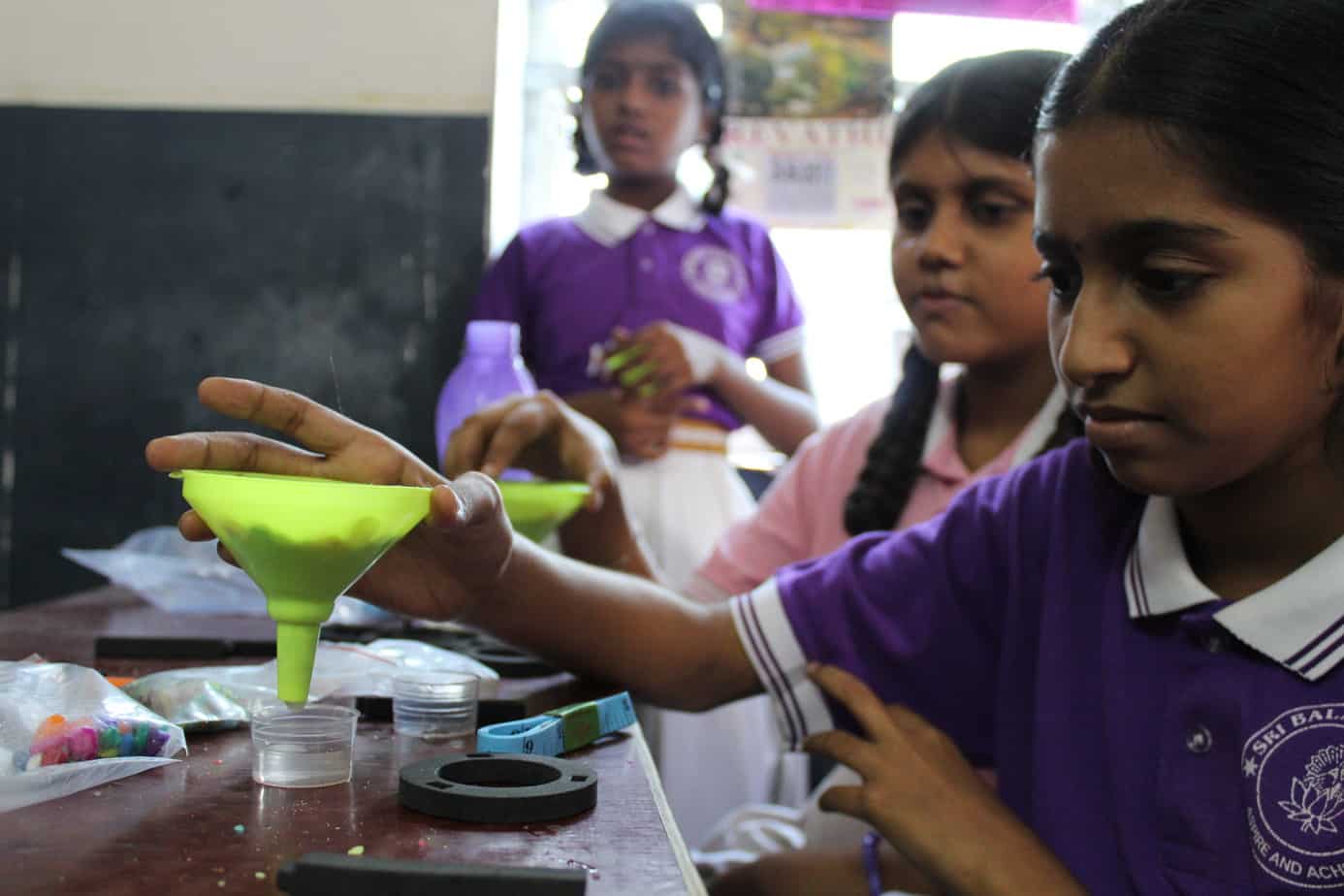Can you drop an egg three storeys down without breaking it?
Eager young children from schools across the Chennai grappled with this challenge as part of a science camp where they were provided a simple kit with which they could use the elements present to prevent the egg from breaking.
Twelve-year old Aniket Tadepalli fashioned a contraption out of cardboard that managed to keep the egg intact. “The egg drop challenge is one of the many activities that we have done as part of camps. It was very exciting because we were not provided any instructions. We had to figure it out on our own. It was also a competition, so that added to the fun.”
Such science camps, dubbed the Nonsense Camps, are a weekly affair in five location across the city. They take place at Mogappair, Anna Nagar, Nungambakkam, Alwarpet and Purasaiwakkam. Neighbourhood camps offer children in the area the opportunity to drop in and get introduced to various scientific concepts through a practical approach. Outside of school, the camps provide a friendly environment for young minds to develop and hone their interest through applied science.
Since children in most schools do not have laboratories until Class 10, the camps become a vital tool for practical learning. The children get a chance to conduct their own science experiments in a safe manner. With a focus on fostering curiosity and interest in science, nonsense camps make learning children centric and driven by them.
“The idea came about when two other founders and I were doing engineering. We realised that no one gave us the right kind of information or awareness about what science entails. We wanted to create a learning experience that was more practical”, says Harish Srinivasan, a co-founder of education start-up Infinite Engineers that organises the camps.
Learning by doing
Over the last five years, the social enterprise has reached out to 1500 children on a yearly basis. They work with government and private schools and also conduct after school activities for hands-on learning. The nonsense camps are held on a weekly basis, in addition to camps in other locations. In recent times, there has been an endeavour to create a problem-solving community from participants across the city. The children chosen work on longer science projects that can be showcased.
For Padmashree Tadepalli, the camps are in line with her philosophy toward teaching. Her two children, aged 10 and 12, are home-schooled. “In 2016, my children attended an Infinite Engineers camp in Kotturpuram. They enjoyed it very much. The coordinators were impressed with their out-of-the-box thinking that is a result of their unschooling. I liked their unconventional approach to science. It matched my ideas towards learning. The child-centric approach helps build confidence in kids as they learn by doing various experiments.”
Her son Aniket’s interest in science has been spurred by his participation in the camps. “Ever since I was young, I used to try to do DIY science projects. But I sometimes found it hard to make them work. The camps helped me as they provided all the resources. The best thing is that they do not provide us any rule books. They let us figure things out on our own.”
The camps involve children engaging in a variety of activities. They learn the inner workings of items such as a bicycle and computers. For example, to introduce concepts in electricity, the children are provided with kits that help them build a circuit and test if everyday items are conductors or insulators.
Founder Harish thinks of the journey fondly. “We are really enjoying the progress made. There are many ideas in the alternative education sector. Lots of teachers and principals we work with have taken to hands-on learning. They understand the importance of skill development among the children.”
Child-centric approach
When Harish Srinivasan, MA Aravind and MC Jaikanth founded the start-up, they wanted to reach out to children from an early age. They created a portable science kit – the Dexter Box – which allows children to perform a variety of simple science experiments on their own. The box went through various iterations to find the perfect contents. Infinite Engineers then approached government and private schools across the city with the idea.
“We work with children from classes 6 – 10. The contents of the Dexter box is designed to match the science curriculum in the schools for each of these classes”, says Harish.
Anbu, who teaches biology for Classes 9 and 10 at the Titan School, says “ The Dexter box has proven very useful. The students receive the materials, they have to work with it themselves. Since lab access is restricted to older students, this is a great way for young students to access science.”
Looking ahead
As interest grows towards the approach, the founders have many plans in progress for the young minds of Chennai. “We are looking to set up more science clubs which will be a platform to develop peer-learning. The clubs will be run by students, for the students. We are also working on an online platform that connects students with mentors and innovators. It will be a way for kids to connect with persons they can look up to,” says Harish.
The start-up is also looking to partner with more government schools through NGOs such as Teach for India that are working in the space. Collaboration with pioneers of alternative learning and creation of more innovative products that will make science accessible to many are among the infinite possibilities in the future.

